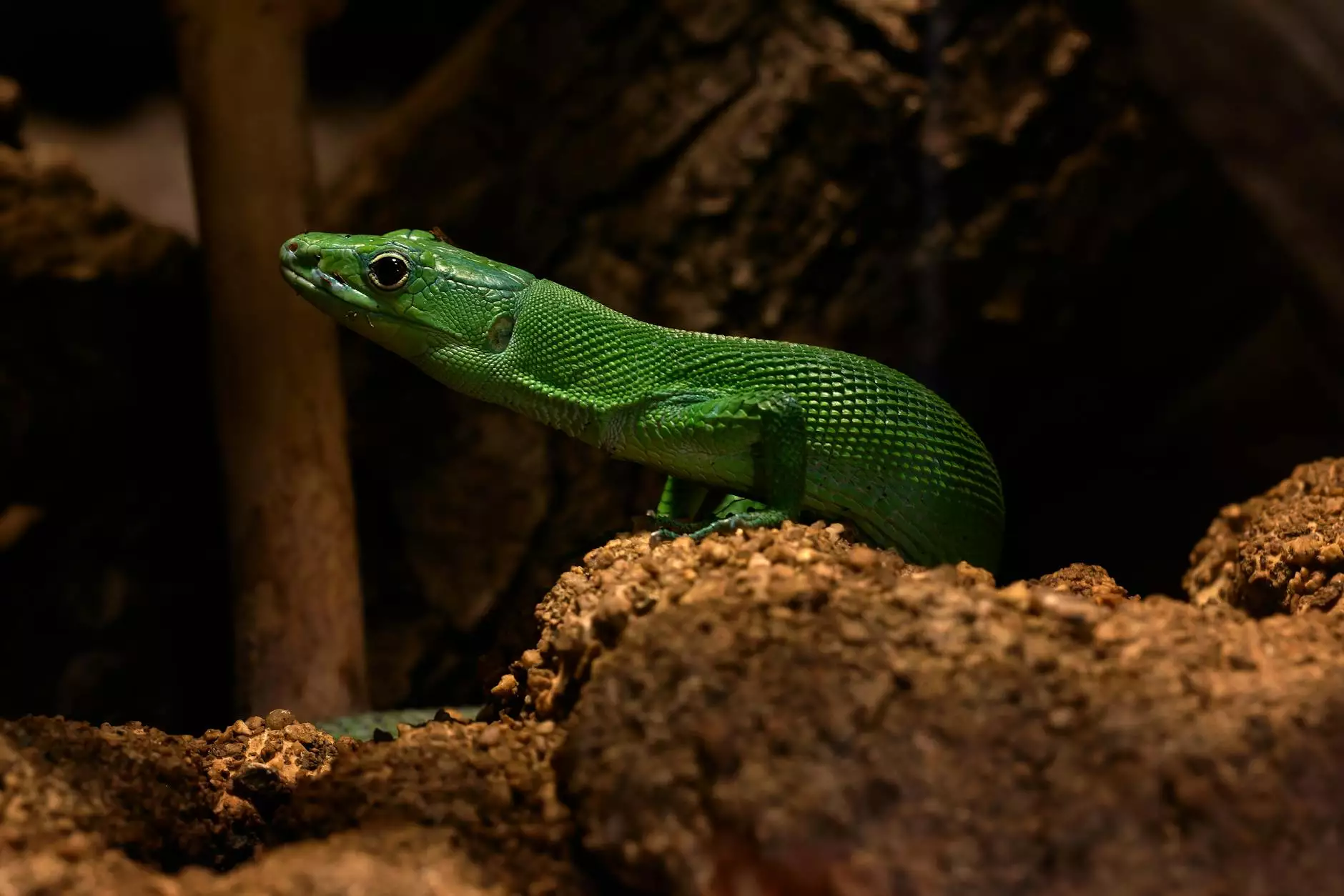Everything You Need to Know About Owning a Pet Leopard Gecko

Are you considering adding a pet leopard gecko to your family? These fascinating reptiles have become increasingly popular in the world of exotic pets due to their manageable size, unique personality, and relatively simple care requirements. In this detailed article, we will explore various aspects of leopard gecko ownership, from their habitat needs to their diet, health care, and much more. Whether you're a seasoned reptile enthusiast or a first-time pet owner, you'll find valuable information to ensure a happy and healthy life for your new companion.
Why Choose a Pet Leopard Gecko?
Leopard geckos are among the most popular reptiles kept as pets, and for good reason. Here are several compelling reasons to consider adopting one:
- Low Maintenance: They require less attention than traditional pets like dogs or cats.
- Unique Personalities: Each leopard gecko has its own temperament and quirks.
- Attractive Appearance: Their colorful patterns and friendly demeanor make them visually appealing.
- Educational Experience: Caring for a reptile can teach children and adults about responsibility and biology.
- Long Lifespan: With proper care, leopard geckos can live for over 20 years!
Setting Up Your Leopard Gecko's Habitat
An appropriate habitat is essential for the well-being of your pet leopard gecko. Here's what you need to set up a comfortable and safe environment:
Choosing the Right Enclosure
Leopard geckos need a secure enclosure to thrive. A glass terrarium with a screen top is a popular choice. The recommended minimum size is:
- 20-gallon tank for one adult gecko
- 40-gallon tank for multiple geckos
Substrate Options
Selecting the right substrate is crucial. Avoid using sand or wood chips, as these can cause health issues. Instead, consider:
- Paper Towels: Easy to clean and safe for your gecko.
- Slate Tiles: Naturalistic and easy to maintain.
- Reptile Carpet: Soft and safe for your pet.
Heating and Lighting
Leopard geckos are ectothermic, meaning they rely on their environment to regulate their body temperature. Here are a few tips to provide proper heating:
- Heat Gradient: Create a warm side and a cool side in the enclosure. Use a heat mat or ceramic heat emitter on the warm side.
- Temperature Range: Maintain a basking spot temperature of 90-95°F and a cooler side around 75-80°F.
- Lighting: Leopard geckos do not require UVB lighting but will benefit from a light cycle simulating day and night.
Hiding Spots and Decor
Leopard geckos are shy creatures and need places to hide and feel secure. Provide multiple hiding spots using:
- Caves: Commercially available reptile hides work well.
- Plants: Use fake or live plants to give a natural look and additional hiding spots.
Feeding Your Pet Leopard Gecko
Feeding a pet leopard gecko is simple but essential to their health. Here’s what you should know about their diet:
Diet Basics
Leopard geckos are insectivores, which means their diet consists mainly of insects. Here’s a list of safe food options:
- Crickets: A staple for leopard geckos. Ensure they are small enough to be eaten in one bite.
- Mealworms: Another excellent source of protein and fat.
- Dubia Roaches: Highly nutritious and easy to digest.
Feeding Frequency
Young leopard geckos should be fed daily, while adults can be fed every other day. Always ensure that live insects are no larger than the width of your gecko's head to prevent choking.
Supplements
To ensure your leopard gecko receives all necessary nutrients, use calcium and vitamin D3 supplements. Dust the insects with these supplements before feeding:
- Calcium Powder: Essential for bone health.
- Vitamin D3: Supports calcium absorption.
Health Care for Your Leopard Gecko
Regular health care is crucial for maintaining the well-being of your pet leopard gecko. Here are important aspects to consider:
Common Health Issues
Some common health problems in leopard geckos include:
- Metabolic Bone Disease: Often caused by calcium deficiency.
- Impactation: Can result from ingesting substrate; symptoms include lethargy and lack of appetite.
- Parasites: Routine fecal examinations can help prevent parasitic infections.
Regular Vet Check-Ups
Just like any other pet, leopard geckos should see a vet who specializes in reptiles at least once a year. This ensures they remain healthy and can help detect any potential problems early.
Signs of a Healthy Leopard Gecko
Keep an eye on these signs, which indicate that your gecko is healthy:
- Active Behavior: Regular movement and exploration.
- Healthy Appetite: Consistent eating habits.
- Clear Eyes: Bright and clear eyes without discharge.
- Proper Shedding: Regular shedding without retained skin.
Bonding with Your Leopard Gecko
Building a bond with your pet leopard gecko can enhance both your experience and theirs. Here are some tips to establish trust:
Handling Your Gecko
When handling your leopard gecko, always:
- Support their body properly to avoid injury.
- Start slowly; allow them to get used to your presence.
- Avoid abrupt movements that may scare them.
Behavioral Cues
Learning your gecko's behavior can help you understand their mood and comfort levels. Common cues include:
- Tail Wagging: May indicate excitement or curiosity.
- Hiding: Can show they’re feeling insecure or need alone time.
Adopting a Pet Leopard Gecko from BuyReptiles.com.au
If you are ready to adopt a pet leopard gecko, consider choosing a reputable source like BuyReptiles.com.au. They offer a wide range of healthy reptiles, including various morphs of leopard geckos. When adopting, ensure the following:
- Check for a healthy appearance, including clear eyes and proper weight.
- Inquire about the gecko’s feeding and health history.
- Ask about any specific care instructions relevant to the animal you're considering.
Conclusion
In conclusion, owning a pet leopard gecko is a rewarding experience that can bring joy and companionship to families and individuals alike. By providing a suitable habitat, proper diet, and regular health care, you can ensure a long, happy life for your new reptilian friend. If you are considering adopting one of these amazing pets, visit BuyReptiles.com.au for healthy options and expert guidance. Whether you are new to reptiles or have experience, these creatures can become cherished members of your household.









